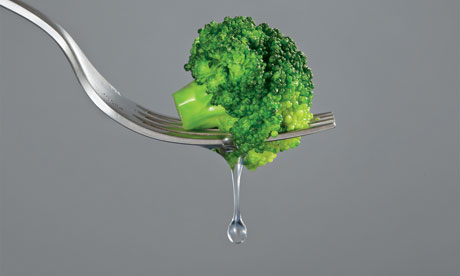
I'm in my 70s and my nose runs constantly as soon as I start eating a meal, be it breakfast, lunch or dinner. It doesn't matter what the food is, or whether it is hot or cold; the moment I start eating, out comes my handkerchief. It's very offputting for those around me. What could it be?
It sounds to me as if you have non-allergic vasomotor rhinorrhoea, in which the nasal membranes react to certain stimuli, in your case the smell of food, by producing watery mucus (much as your salivary glands produce saliva). The standard treatment is to dry up the nasal fluid production by using an antimuscarinic spray, ipratropium bromide, though its side-effects can include nausea, headache and a dry throat. First, explain your problem to your doctor, who will go into your history in more detail and perhaps organise tests to determine the cause. He or she will then decide what best to offer you to restore your nasal membranes to normal.
I'm suffering from really bad morning sickness, and am sick several times a day. I know my GP would offer me anti-nausea medication if I wanted it, but I worry they carry some degree of risk. Is it better to tough it out without them?
We try to manage pregnancyvomiting without drugs if we can because of historic reports of damage to the developing foetus by drugs – the worst, of course, being thalidomide. However, if vomiting and nausea persist, then three drugs, promethazine, prochlorperazine and metoclopramide, are considered valuable and recommended by the British National Formulary. They do work, and your doctor may well offer you one of them. The risk from them is very small, if it exists at all, and at times must be less than those caused by letting the sickness continue. The decision depends on how far you are in your pregnancy: if you have passed the third month, there is less risk from drugs to your developing baby than in the first eight weeks. In the rare case of the morning sickness becoming hyperemesis – a very severe state of constant vomiting – intravenous fluids may be needed to keep up the mother-to-be's nutritional state.
• Got a question for Dr Tom? Email doctordoctor@theguardian.com

